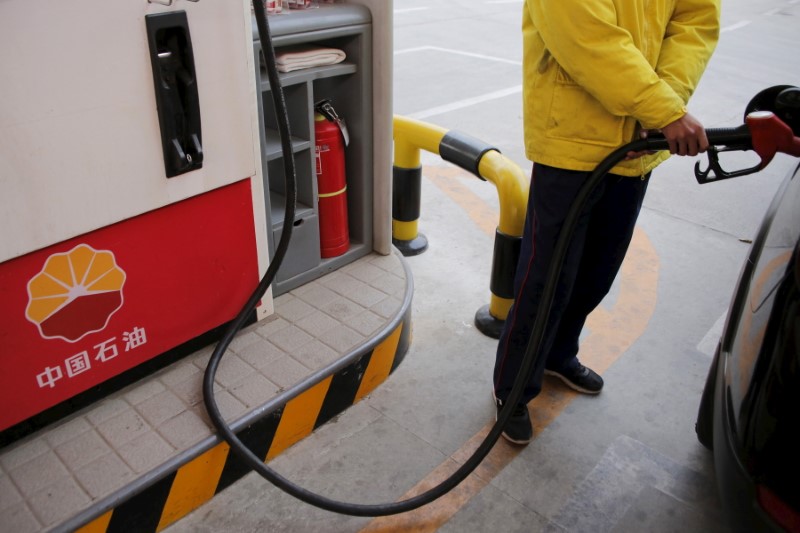By Jessica Resnick-Ault
NEW YORK (Reuters) - Oil prices ticked higher on Wednesday on expectations that U.S. crude inventories have dropped and on signs that the world's top oil exporters will stick to agreed output cuts that took effect this week.
Global benchmark Brent crude futures (LCOc1) rose 28 cents to $55.75 a barrel, a 0.5 percent gain by 10:51 a.m. Eastern. U.S. West Texas Intermediate crude futures (CLc1) gained 25 cents, or 0.5 percent, at $52.58 a barrel.
Both benchmarks recovered some losses from the previous day - when the U.S.-dollar (DXY) hit a 14-year peak and knocked oil from 18-month highs - as the greenback dipped on Wednesday, making dollar-denominated fuel purchases in other currencies cheaper. [/USD]
Weekly U.S. industry and government reports are expected to show a 1.7 million-barrel crude draw for last week, analysts polled by Reuters said ahead of the data due late Wednesday and on Thursday. [EIA/S]
"We are expecting a draw," said Tariq Zahir, managing member of Tyche Capital Advisors in New York.
Oil companies likely drew down inventories in the final week of the year for tax-related reasons, which could lead prices to spike after inventory data is released.
OPEC member Kuwait also lifted expectations that producers will comply with a deal to reduce oversupply after its state-owned oil producer said on Wednesday it would cut output in the first quarter.
Members of the Organization of the Petroleum Exporting Countries in November agreed their first output cut since 2008 in an attempt to stabilize oil prices.
As part of the deal, Kuwait has to reduce output by 131,000 barrels per day.
An OPEC committee meeting to monitor compliance with the agreement is scheduled for Jan. 21-22 in Vienna.
"Prices are likely to remain volatile until there is evidence that quotas are being adhered to," analysts at Cenkos Securities wrote.
Zahir cautioned that increased oil production from OPEC member Libya has come online faster than anticipated and may deter some OPEC members from cutting their own output.

Also reflecting a tightening market, traders expect top oil exporter Saudi Arabia to raise the official selling price for its crude to Asia in February.